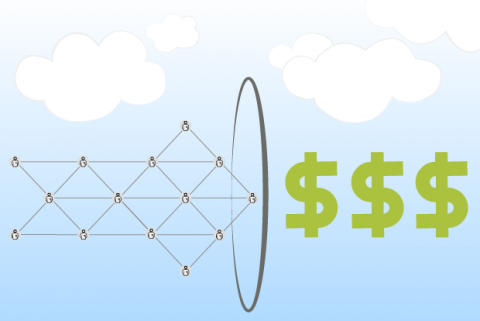It’s Tax Day in the United States, with April 15 marking the deadline by which U.S. residents must file their annual tax returns. Earlier this year, as I was filing my taxes, I started thinking about all the data that is shared in the brave new world of continuous informational flow that we live in today. As mentioned in this article by Forbes contributor Bernard Marr, research released by the Economist Intelligence Unit reported that 60 percent of the professionals they quizzed feel that data is generating revenue within their organizations, and 83 percent say it is making existing services and products more profitable. While I am neither a proponent nor a fan of additional taxes, I do wonder if data itself might become a taxable asset.
In a recent article, Gartner Vice President, Doug Laney, discusses some of the challenges of organizations are facing when it comes to taking inventory and measuring their information assets. He writes, “Business leaders and IT executives increasingly wax about how their company’s information is one of their most important assets. Research from Gartner, KPMG and others has shown how significantly investors and financial analysts favor information-savvy and information-centric companies. However, information is not recognizable as a balance sheet asset – even though information meets all the criteria. We are in the midst of the Information Age, yet information is still considered a non-entity by antiquated accounting standards!”
Again, all of this makes me wonder if data has the potential to become a taxable asset. Consider these potential taxation points that surface through the life cycle of a data element.
Generation. When I engage in social media channels, I am providing data from which insight can be gathered with additional context to characterize my social persona. Interested businesses can turn this into valuable financial benefits by using relevant marketing techniques for their goods and services. Should such value realization be a taxable act?
Possession. Enterprises have the ability to possess massive amounts of information about diverse customer segments — is such possession equivalent to owning physical assets, such as real estate? Would there be tax implications as a result?
Trade. Businesses tend to exchange information about human entities with no money changing hands. Is the exchange of such information a taxable act? Or, for that matter if it changes hands at a cost, should the seller pay taxes on capital gains incurred?
Informationalization. In this Harvard Business Review blog post the "Data Doc" Thomas C. Redman introduces the concept of Informationalization – a more holistic approach to realizing information from data with context – resulting in a significant appreciation in value. Does this translate into proportional taxation?
Charity. If data can cause taxation, citizens should be entitled to tax benefits too. If I contribute information to charitable organizations and that information is used for the betterment of the human race, am I entitled to a deduction? In another intriguing article, Laney discusses the (possible) tax advantages of bartering with information. And by the way, while we are on the topic of deductions, each one of us provide our data to the taxing authority when filing taxes. Shouldn't we get a deduction for sharing this data?
Taxation is usually a delayed act after there are well-defined mechanisms to understand and estimate the value of the asset concerned. I don't anticipate any immediate repercussions in the short term. But then, all assets with a tangible financial value are candidates for taxation, so you can’t help but wonder if data may be on the path to taxation.
Truth be told, I am in no rush for any additional taxation – even for data. But with it being Tax Day and all in the United States, I’d be curious to hear your thoughts about data being treated as a taxable asset. And if those of you in the United States want to file your taxes before taking the time to comment, I do understand.




